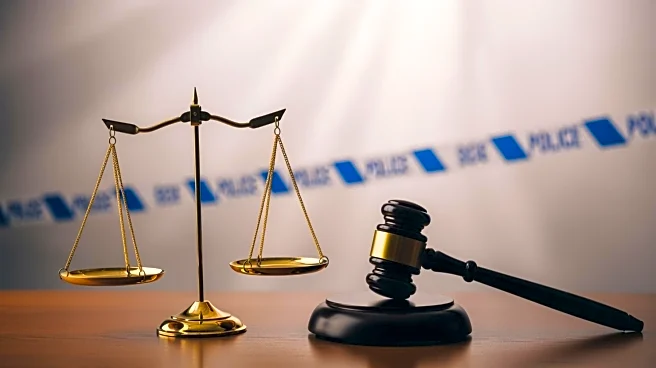What's Happening?
The validity of President Trump's appointment of two federal prosecutors is under judicial review, with potential implications for cases against former FBI Director James Comey and others. The appointments of Lindsey Halligan in Virginia and Alina Habba
in New Jersey are being challenged for allegedly bypassing legal procedures. Halligan, who indicted Comey, is accused of being unlawfully appointed, which could invalidate the indictment. The process typically involves Senate confirmation, but Trump reportedly used alternative methods, raising questions about adherence to legal norms.
Why It's Important?
The court's decision could affect numerous federal prosecutions, potentially halting cases if the appointments are deemed invalid. This situation highlights the importance of procedural integrity in judicial appointments and the balance of power between the presidency and the Senate. The outcome may influence future appointments and the administration's approach to legal processes, impacting public trust in the judicial system.
What's Next?
If the court rules against the appointments, it could lead to the dismissal of high-profile cases and necessitate reappointments through proper channels. The decision may prompt legislative scrutiny and calls for reform in appointment procedures. Stakeholders, including legal experts and political leaders, will likely respond based on the ruling's implications for judicial independence and executive authority.
Beyond the Headlines
This case raises broader questions about the separation of powers and the checks and balances inherent in U.S. governance. It underscores the potential consequences of circumventing established legal procedures and the importance of maintaining institutional integrity in the appointment of key legal figures.
















